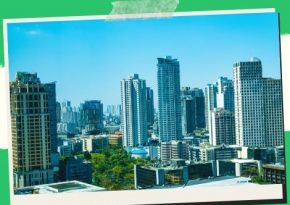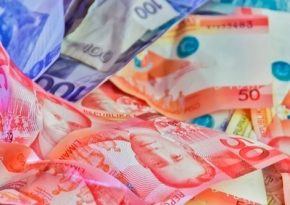
APEC will strengthen collaborations to promote inclusivity and sustainability
Officials from the Asia-Pacific Economic Cooperation (APEC), members of the corporate sector, environmental specialists, experts from international organizations, and young people are investigating business methods and funding as routes to the region’s sustainable economic growth.
Thani Thongphakdi, Thailand’s permanent secretary for foreign affairs, said during a discussion on ways to strengthen partnerships for sustainable economic growth that took place in Chiang Mai on August 27 that the stakes are high for APEC to push for concrete actions to achieve more sustainable economic growth.
According to a press release from the SOM Steering Committee on Economic and Technical Cooperation that was received here on Sunday, the APEC region experiences more than 70% of all natural catastrophes worldwide, with disaster-related damages totaling US$100 billion yearly.
Climate change in APEC poses a huge economic danger. According to the APEC Policy Support Unit, even in the best-case scenario, when average temperatures are maintained at or below 2 degrees Celsius, or relative to pre-industrial levels, APEC can expect gross domestic product (GDP) losses of 0.6 to 11.3 percent by 2050 relative to a no-climate change scenario.
Thani Thongphakdi emphasized the bio-circular-green (BCG) economy model as a post-pandemic growth approach in the conversation examining methods to improve partnerships for sustainable economic growth.
In an effort to create a system where the economy and business may flourish, it integrates research, creativity, and technology to encourage resource efficiency, preserve and restore ecosystems, and decrease waste.
Understanding the intricate interactions between the environment, society, and economy is at the core of the BCG strategy.
Economic strategies have historically neglected the environmental effects of economic activity and failed to account for the consequences of such activity to the economy and society.
Thailand, which will host APEC in 2022, responded by introducing the BCG economy model, which strives to handle completely environmental concerns such as climate change, extreme weather, and natural catastrophes.
Thani, who is also the chair of the 2022 APEC Senior Officials, said, “In our journey towards recovery, it is vital to prioritize investment in strengthening sustainability and resiliency against future challenges.”
To make sure that our policy stimulates sustainable business practices and promotes investment and financing, he continued, “We need to build public-private-people cooperation in this area.
Christophe Bahuet, deputy regional director for Asia and the Pacific at the United Nations Development Programme, spoke about the need for investments in the health of both people and the environment in order to support recovery efforts, emphasizing how closely linked health and the environment are for a successful coronavirus disease 2019 (Covid-19) response.
To support the immediate Covid-19 response and aid in averting future health crises, economies must scale up their investments in creating resilient and sustainable systems for health, according to Bahuet.
He asserted that significant investment would be needed to meet the Sustainable Development Goals by 2030.
These additional investment demands will be greater because of the pandemic, socioeconomic and geopolitical difficulties, and rising climate and environmental concerns, he continued.
At the discussion, policymakers heard what motivates firms to change to more sustainable practices as well as the difficulties they encounter during this vital shift from the private sector.
The fault lines exposed by Covid-19 and their economic repercussions in the APEC region were discussed.
Years of economic and development progress have been hampered by the pandemic, which has also put greater strain on small, vulnerable enterprises.
Speakers and attendees agreed that for economic growth to be beneficial to all, a balanced, robust, and sustainable economy is required.
In light of the critical role that sustainable financing and investment play in fostering and empowering small enterprises, delegates also discussed policy levers to further increase access to these resources.
They also discussed the difficulties they encountered in putting sustainability into reality and the potential that exist to fill those gaps and make sure that policies benefit everyone.
“We need to continue cooperation between member economies in APEC in order to accomplish our ambitious aim of a greener and more inclusive future,” said Matt Murray, Chair of the APEC SOM Steering Committee on Economic and Technical Cooperation.
“We can develop better policies, generate greater interest in sustainable practices, and increase the resilience of our economies by expanding our network of partnerships with varied stakeholders from the commercial sector, civil society, and the youth,” he continued.
Save/Share this story with QR CODE
Disclaimer
This article is for informational purposes only and does not constitute endorsement of any specific technologies or methodologies and financial advice or endorsement of any specific products or services.
 Need to get in touch?
Need to get in touch?

We appreciate your reading. 
1.) 

Your DONATION will be used to fund and maintain NEXTGENDAY.com
Subscribers in the Philippines can make donations to mobile number 0917 906 3081, thru GCash.
3.) 
4.) 
AFFILIATE PARTNERS

World Class Nutritional Supplements - Buy Highest Quality Products, Purest Most Healthy Ingredients, Direct to your Door! Up to 90% OFF.
Join LiveGood Today - A company created to satisfy the world's most demanding leaders and entrepreneurs, with the best compensation plan today.

 Business, Finance & Technology
Business, Finance & Technology

 Business Technology, Finance Technology & Information Technology
Business Technology, Finance Technology & Information Technology





 MANILA – A total of 830 informal sector workers […]
MANILA – A total of 830 informal sector workers […]

